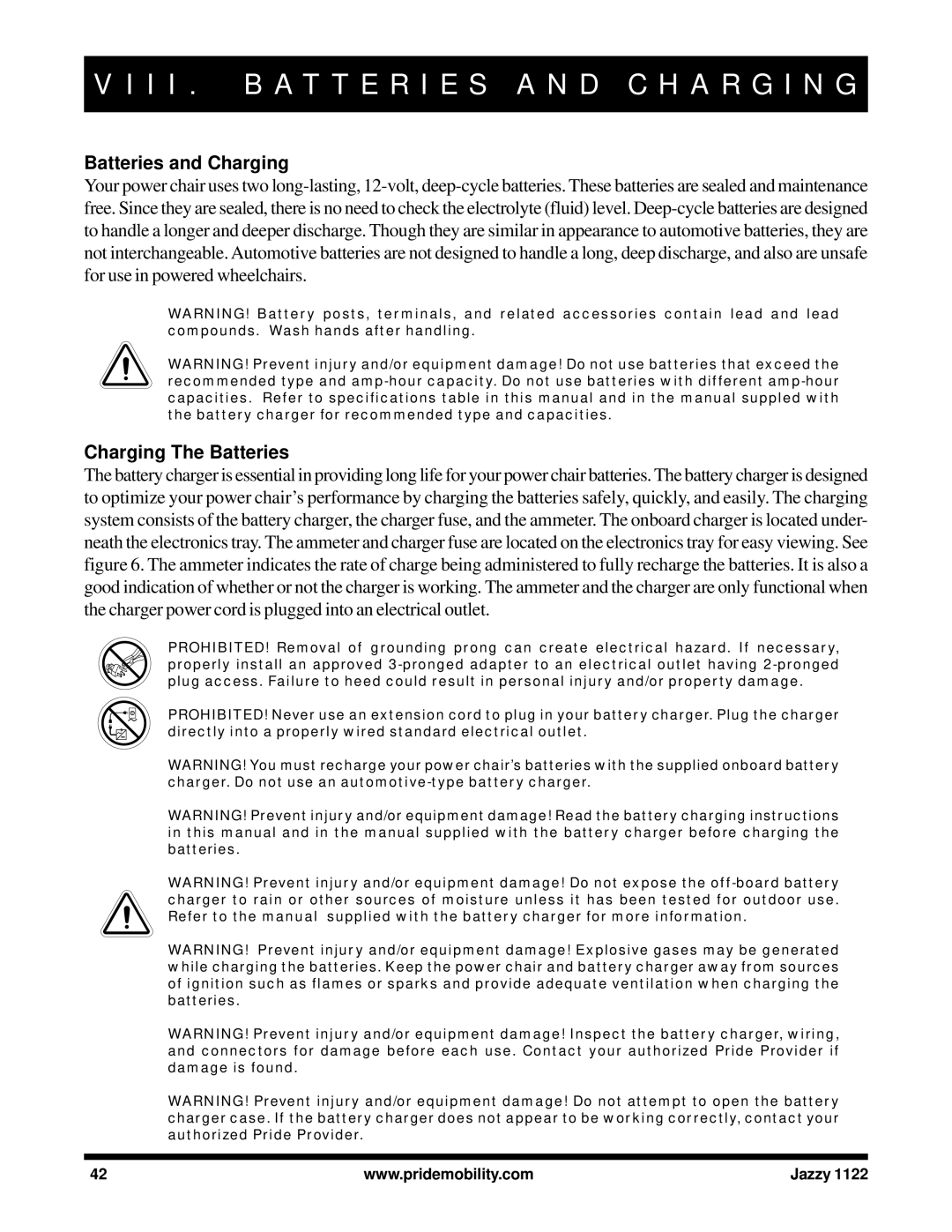
V I I I . B A T T E R I E S A N D C H A R G I N G
Batteries and Charging
Your power chair uses two
WARNING! Battery posts, terminals, and related accessories contain lead and lead compounds. Wash hands after handling.
WARNING! Prevent injury and/or equipment damage! Do not use batteries that exceed the recommended type and
Charging The Batteries
The battery charger is essential in providing long life for your power chair batteries. The battery charger is designed to optimize your power chair’s performance by charging the batteries safely, quickly, and easily. The charging system consists of the battery charger, the charger fuse, and the ammeter. The onboard charger is located under- neath the electronics tray. The ammeter and charger fuse are located on the electronics tray for easy viewing. See figure 6. The ammeter indicates the rate of charge being administered to fully recharge the batteries. It is also a good indication of whether or not the charger is working. The ammeter and the charger are only functional when the charger power cord is plugged into an electrical outlet.
PROHIBITED! Removal of grounding prong can create electrical hazard. If necessary, properly install an approved
PROHIBITED! Never use an extension cord to plug in your battery charger. Plug the charger directly into a properly wired standard electrical outlet.
WARNING! You must recharge your power chair’s batteries with the supplied onboard battery charger. Do not use an
WARNING! Prevent injury and/or equipment damage! Read the battery charging instructions in this manual and in the manual supplied with the battery charger before charging the batteries.
WARNING! Prevent injury and/or equipment damage! Do not expose the
WARNING! Prevent injury and/or equipment damage! Explosive gases may be generated while charging the batteries. Keep the power chair and battery charger away from sources of ignition such as flames or sparks and provide adequate ventilation when charging the batteries.
WARNING! Prevent injury and/or equipment damage! Inspect the battery charger, wiring, and connectors for damage before each use. Contact your authorized Pride Provider if damage is found.
WARNING! Prevent injury and/or equipment damage! Do not attempt to open the battery charger case. If the battery charger does not appear to be working correctly, contact your authorized Pride Provider.
42 | www.pridemobility.com | Jazzy 1122 |
